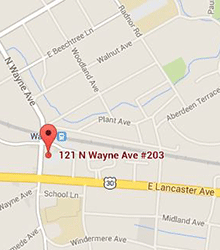Teeth, like trees, are strongest at their roots. What happens when your tooth roots are weak, or worse – deteriorating? Strong roots hold a tree in place. The same is true with your teeth.
Missing teeth are bad-to-the-bone.
When teeth are missing from lack of proper treatment, poor care, or trauma the bone that once supported them begins to deteriorate. This melting away of the bone is called bone resorption.
Tooth roots are naturally embedded in the jawbone. When the tooth and its root are extracted the bone structure loses function and begins to deteriorate or “resorb.”
What over 50 years of clinical research and a 95% success rate can do for you.
Dental implants replace tooth roots and prevent bone deterioration. The bone in your jaw bonds to the implant and begins to function as your natural tooth roots do.
Your natural tooth roots embed themselves in your jawbone. The roots form a stable foundation that enables your teeth to function properly.
Think of your dental implant as a substitute tooth root. They provide you all the function and appearance of your natural teeth on a solid, stable new root foundation.
Dental implants cover you from front-to-back and everything in between.
Front (anterior) tooth loss is risky. The bone is thin in the front of your mouth and it typically melts away more quickly. Your appearance changes in more ways than one when you lose front teeth. The gums cave in and collapse altering your smile. Even replacing a front tooth with a tooth supported bridge will eventually create a false-tooth look. The gums and once supportive bone begin to collapse and suspend the tooth without support.
A dental implant supported crown on a front tooth looks and functions naturally. It preserves your bone and prevents further defects.
Missing back (posterior) teeth actually collapse as your bone deteriorates. This causes your front teeth to flare-out as your bite collapses and mouth corners droop. Replacing back (posterior) teeth with partial dentures can actually accelerate the bone resorption process. Eating presses the partial down on your gums and underlying bone. Implant supported bridges preserve the bone. They prevent your bone from deteriorating and resulting in bite collapse from missing teeth.
Missing all or most of your teeth is equally complicated. Your jaw is at risk from quicker deterioration.
Even worse, as your bone melts away facial muscles pull back from their natural position. This causes your lips to cave in and give way to increased wrinkles around your mouth.
Dentures, a standard alternative, can actually compromise your facial structure. Bone resorption can be accelerated by dentures as they put pressure on the underlying bone.
The collapse in facial structure leads to more maintenance on your dentures. They must be relined (thickened) to compensate for increasing bone loss.
Teeth replaced with an implant supported over-denture or bridge preserves the bone. The implant-bridge combo prevents further deterioration of your facial structure and the health problems associated with complete tooth loss.
Keeping your teeth healthy and fully functioning is your top priority. If you experience tooth loss dental implant options will keep your mouth healthy, strong, and functional at the roots.
What dental implant insight or option is most useful to you and your current dental health?

